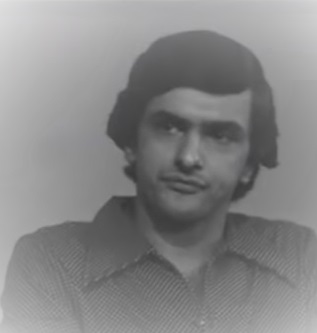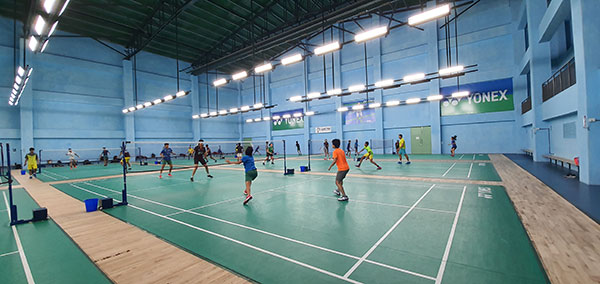Prakash Padukone’s role in transforming the Indian sports and inspiring an entire nation, is second to none
BYLINE: Shams Ur Rehman Alavi
India has no dearth of players who have excelled in games at the international level and shown their talent to the world. There have always been sportsmen who have made India proud.

But in India’s sporting history, one man stands tall and yet he never gets as much credit despite his spectacular success. This man is Prakash Padukone.
Imagine how challenging it would have been to excel in a sport that is played in most of the countries, needs real fitness, high-levels of concentration and agility, besides concentration. But, it wasn’t impossible for him. Scripting history during his era, he became the top ranking player in the world.
Of course, India has had players who have won tournaments and brought medals, and whose achievements we celebrate. Yet, Prakash Padukone’s role in transforming the Indian sports and inspiring an entire nation, is second to none. But, why is it so? Well, prior to Padukone’s achievement, India was achieving success in team sports apart from certain games that are played in few countries and were less competitive. But his rise, changed it all.
In 1980, he became the world number 1. It was the time when India that was earlier a major power in hockey, was coping with changes in the games from the decade of 1970s.
Cricket had brought glamour and it got spectators, the stadiums were full, but there were few victories. In tennis, Vijay Amritraj and Ramesh Krishnan had appeared in the scene and were trying hard to get past initial rounds in grand slams.
THE JOURNEY TOWARDS THE TOP
In this scenario, Padukone walked in and went on to catch eyes of the sporting world. Hailing from Bangalore [now Bengaluru], he had started playing badminton when he was barely seven. Under the watchful eyes of his father, he trained hard.
When he was barely 15-year-old, he had five state titles to his credit. By next year, he had won both the junior and the senior national titles. Soon, he was representing India at the national-level. But despite his talent, few imagined that he would go on to beat the best in the world.

All the while, he kept on winning the national titles, year after year. As he gained international exposure, Prakash grew confident. It was in the year 1978 when he won the gold medal at Commonwealth games in Canada.
This was men’s singles gold and a big achievement. Suddenly, the press in India was excited about him. The young man was under spotlight and his games were being reported in newspapers as well as news about his participation in events was getting aired on radio.
CONQUERING THE BADMINTON WORLD
Two years later, Prakash won the Danish Open. China, Denmark and Indonesia were the countries that produced the best badminton players. But now India was also close to getting into this elite club.
It turned out to be the most special year in his life. Prakash went on to win the Swedish Open too. The biggest success of his career was yet to come, a victory that would bring him to the list of legends and change his life forever.

It was All England, the biggest badminton championship in the world, and that can be termed as big as Wimbledon is for Tennis. As he walked towards the court in Wembley stadium, some sensed that it was going to be a historic match.
Though facing Liem Swie King, the Indonesian shuttler, who was considered a star and the best badminton player in the world, Prakash’s body language exuded supreme confidence. He concentrated on keeping things on the baseline and maintained correct length.
King was the defending champion. He tried his best but fell in Prakash’s trap. As a result King tried to finish the rallies early and in process, started making mistakes while Prakash’s shots were perfect to precision.
This match showed Prakash’s complete domination. There were waves of applause as Prakash displayed his magic in the rallies. The commentators remarked: “13-10”, ‘oh, beautiful control once again’, “14 match point– 10”, “Beautiful control over the net there from Prakash Padukone… Such accuracy on his net shots!”
The crowd kept on cheering. Prakash ultimately won 15-3, 15-10. On the broadcast, the commentary continued: “…the trophy to the winner and champion at the 1980 All England Men’s Singles Championship to Prakash Padukone from India”. Indians were ecstatic.
LIFE OF A HERO, A SPORTING ICON
The newspapers had to replace items from the front page. After all, it was a stunning victory, a win at the international level. Till then, India had Wilson Johns reach the top in billiards and after him, it was Vishwanathan Anand who got international acclaim and reached new heights in chess.
But in an athletic and competitive game that’s played in almost all the countries, Prakash’s achievement was unique. He was now an icon. In fact, one of the most loved and popular sport star of the era, Sunil Gavaskar, said that he was Padukone’s fan.

Later, Prakash recounted that his experience of playing in Indonesia had helped him. That he had trained hard and also worked on his footwork and stamina. Though King had beaten Prakash earlier, at the All England, it was a different story and the pressure was visible on the Indonesian.
On his return, he got a grand welcome in India. When he reached Bangalore, huge crowd came to catch a glimpse. In his long professional career, he beat legends like Rudy Hartono and Morten Frost, the all-time greatest shuttlers.
Though there was lack of resources, no big Academies or infrastructure, non-availability of good coaches and inadequate training facilities, Prakash Padukone’s rise and his victories, show how determination and dedication turned him into an international champion. He was honoured with Arjuna Award and Padma Shri.
Prakash’s success inspired a new generation of players. Two decades later, Pullela Gopichand won the All England. Indian shuttlers’ ranking too improved and the emergence of Saina Nehwal who was ranked number 1, and brought glory to India, is a story that’s recent and too well-known.
Even after retirement, Prakash Padukone gave his best to badminton. While his daughter—Deepika Padukone— established herself as a Bollywood star, Prakash continued to follow his passion. He established his academy that has trained and coached players for over two decades now. Many prominent players and champions came out of it.
[The author has been a journalist for 24 years. He can be contacted at shams.alavi@gmail.com]
[/ihc-hide-content]




